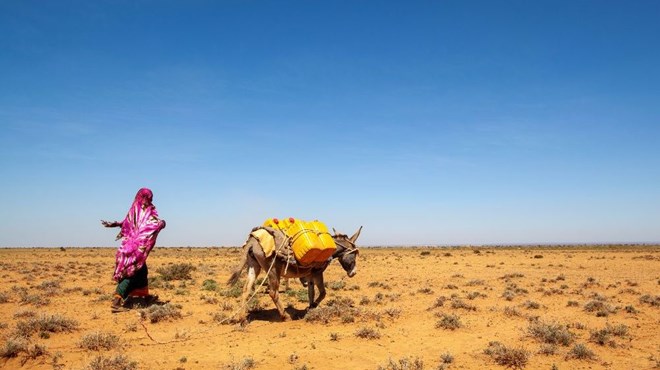
Saturday April 9, 2022

MOGADISHU, (Xinhua) -- The United Nations relief agency said
it is scaling up humanitarian interventions to help 4.9 million of the most
vulnerable people in Somalia.
Adam Abdelmoula, the UN resident and humanitarian
coordinator, said the levels of need are rapidly rising, surpassing available
capacities and resources.
"Around 4.9 million people are affected by this wave of
severe drought, and it is expected to get worse between now and the end of
June," warned Abdelmoula in a statement issued on Wednesday evening after
leading a UN inter-agency team for a visit to Galkayo in northern Somalia to
assess the impact of the drought.
According to the latest drought situation report from the UN
Office for the Coordination of Humanitarian Affairs (OCHA), Somalia's drought
emergency has deteriorated to a point where the country is facing the risk of
famine.
OCHA noted that humanitarian agencies, authorities and local
communities are ramping up responses and reprogramming activities to address
the impact of the drought, adding that the levels of need are rapidly rising,
surpassing available capacities and resources.
It said the escalating emergency calls for sustained scaling
up of response and flexibility in reprogramming, especially given that weather
forecasts are predicting an average to below-average rainy season this month.
The UN delegation heard first-hand of the dire conditions
that local communities of internally displaced people (IDPs) are enduring amid
the severe drought affecting the country, with the visit also providing extra
motivation to do more to help those in need as the risk of famine in Somalia grows.
"It gave me the firsthand testimony that I need to
provide to our donors and to let them know that it is not a fictional thing to
talk about the 1.4 million malnourished children, 330,000 of whom are at risk
of dying by the end of this summer if we don't step up our engagement and
provide them with the support they need," said Abdelmoula after visiting
two IDP camps.
The visiting delegation spoke with UN staff on the ground
working with local authorities to support assistance efforts and interacted
with camp residents.
"It is really heart-wrenching, especially seeing that
there are so many children in these IDP camps. I asked them, how many of you go
to school? It turned out that none of the girls are going to school in these
two camps that I visited. And among the boys, less than 50 percent are
attending school," said Abdelmoula. "This is just devastating and we
should redouble our effort to bring this to the attention of the international
community and those who could afford to assist. We should also leave no stone
unturned in order to help these communities that are hurting so
enormously."